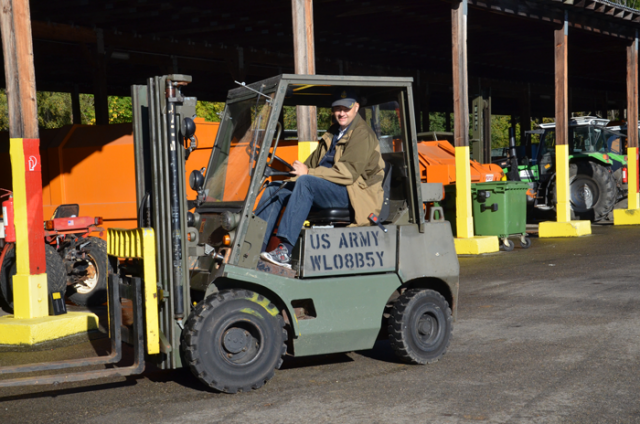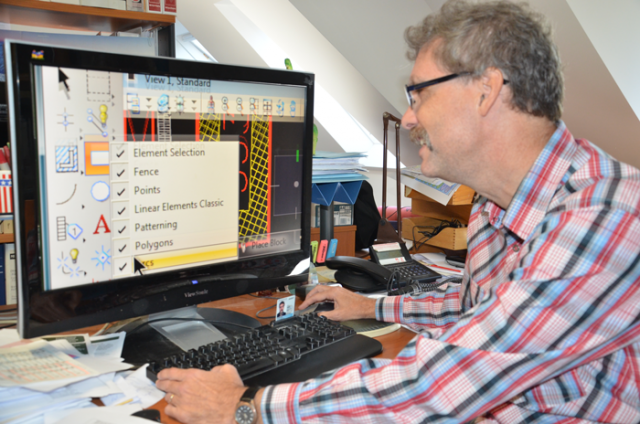
By S.J. Grady
USAG Stuttgart Public Affairs Office
If you live or work on Kelley Barracks, you may have seen Tim Kaiser around. He’s tall, with closely cropped hair, and almost always has a smile on his face. While his physical appearance hardly sets him apart from the crowd, his penchant for dressing in a mixture of vintage U.S. military issue camouflage uniforms just might.
And then there’s the other thing about him. He is deaf.
Born without the ability to hear or speak, Kaiser, a native of Stuttgart, works for the U.S. Army Garrison Stuttgart Directorate of Public Works as a gardener and installation worker.
Those old military uniforms he usually wears to work? It’s Kaiser’s way of putting a lifetime of collecting military gear to practical use, especially for what can be a dirty job.
Kaiser is a proactive employee known for solving problems as soon as he sees them. “He’s the good soul of Kelley Barracks, my right-hand man,” said Dag Kregenow, chief of the DPW Roads and Grounds branch.
At work, Kaiser typically gets his orders through lip reading, gestures and written notes. And when out in the field, he and Kregenow communicate through text messages.

For Kaiser, it has been easy to work with hearing people. He only needs a couple of days to study a person’s gestures and mouth movements in order to understand them, he said through an interpreter.
Off the job, Kaiser’s interests are as eclectic as his work uniforms. He is a student of history, especially Roman history, politics and science; a video gamer; world traveler; and tarot card reader.
Last year Kaiser, along with Johannes Porsche, a soft-spoken, bespectacled mechanical engineer, celebrated 25 years of employment with DPW.
“I am really thankful to have a job like this. Normally, companies don’t hire people like me,” Porsche said.
People “like him” are legally blind.
Porsche was born with a form of high myopia, meaning he can only focus on things inches from his face.
He serves as an archivist for the Master Planning Division, maintaining and updating DPW’s library of installation blueprints and maps.
The irony is not lost on him. “God has humor. The man who sees the worst deals with the tiny drawings,” he said.
“I see 10 percent with glasses and 2.5 percent without glasses, and that’s with my good eye,” said the father of three, displaying his own sense of humor.
Porsche, an ethnic German born in Romania who came to Germany in 1984, copes through the use of technology. For computer work, screen magnification allows him to read emails, work on spreadsheets and modify blueprints.He also uses adaptive aids such as an electronic magnification device, monocular telescope and a talking watch. But Porsche refuses to use a white cane as a mobility aid.
His poor vision means he cannot drive. He does, however, commute to work by train and bus from Metzingen on his own.
He also acts as navigator on family road trips, using the telescope to help him identify street signs and exits.
On his off time, Porsche participates in monthly blue grass sessions, playing guitar, banjo and harmonica. He also plays for his church, writes songs, and dabbles in graphic design.
Kaiser and Porsche are examples of what people with disabilities can bring to a workplace, according to Carl Pritchard, the DPW director.
“Tim Kaiser can’t be defined by ‘deaf;’ he is a great worker with a positive outlook on life. Johannes Porsche isn’t ‘blind;’ he is a CAD draftsman. Peoples’ disabilities don’t define them; how they react and overcome the challenges of life is what defines them,” Pritchard said.
